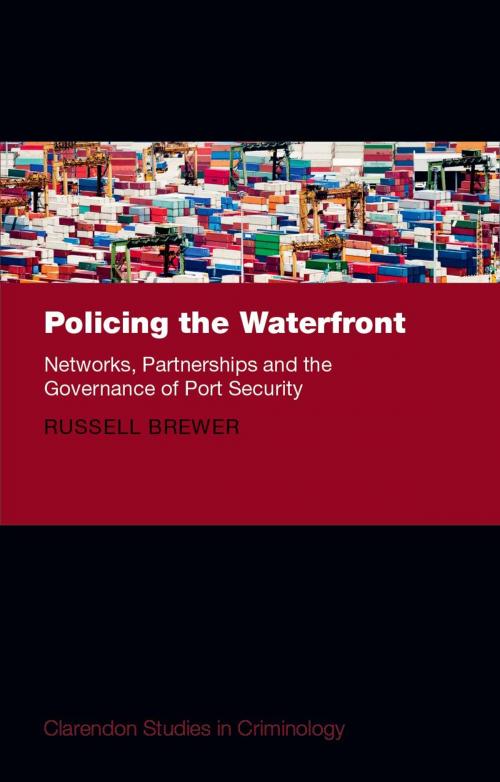Policing the Waterfront
Networks, Partnerships, and the Governance of Port Security
Nonfiction, Reference & Language, Law, Criminal law, Social & Cultural Studies, Political Science, Social Science| Author: | Russell Brewer | ISBN: | 9780191511257 |
| Publisher: | OUP Oxford | Publication: | April 17, 2014 |
| Imprint: | OUP Oxford | Language: | English |
| Author: | Russell Brewer |
| ISBN: | 9780191511257 |
| Publisher: | OUP Oxford |
| Publication: | April 17, 2014 |
| Imprint: | OUP Oxford |
| Language: | English |
Long recognised as a site where criminal elements have flourished, the waterfront has been exploited for centuries by opportunistic individuals for a whole raft of illicit purposes. Policing the Waterfront: Networks, Partnerships, and the Governance of Port Security is the first book of its kind to fully explore the intricacies of how crime is controlled on the waterfront, and in doing so, seeks to enhance current theoretical understandings of the policing partnerships that exist between state and non-state actors. Charting the complex configuration of security networks using a range of analytical techniques, this book presents new empirical data, which exposes and explains the social structures that enable policing partnerships to function on the waterfront. Particularly striking is the use of enhanced and adjusted theoretical discussions, to both shape and develop previous policing and security debates - resulting in a work that is both innovative and, yet, still routed in the traditions of empirical research. The analysis is achieved through a comparative research design, evaluating the narratives of both state and non-state security providers at the busiest ports in America and Australia: the Los Angeles/Long Beach Port Complex and the Port of Melbourne. Policing the Waterfront presents a rich and highly original account of the underlying structures that foster, facilitate, and enhance policing partnerships on the waterfront, and will be of interest to scholars in the fields of criminology, sociology, law, socio-legal and policy studies, as well as those researching and studying policing, regulation, security, mass transportation, and social capital.
Long recognised as a site where criminal elements have flourished, the waterfront has been exploited for centuries by opportunistic individuals for a whole raft of illicit purposes. Policing the Waterfront: Networks, Partnerships, and the Governance of Port Security is the first book of its kind to fully explore the intricacies of how crime is controlled on the waterfront, and in doing so, seeks to enhance current theoretical understandings of the policing partnerships that exist between state and non-state actors. Charting the complex configuration of security networks using a range of analytical techniques, this book presents new empirical data, which exposes and explains the social structures that enable policing partnerships to function on the waterfront. Particularly striking is the use of enhanced and adjusted theoretical discussions, to both shape and develop previous policing and security debates - resulting in a work that is both innovative and, yet, still routed in the traditions of empirical research. The analysis is achieved through a comparative research design, evaluating the narratives of both state and non-state security providers at the busiest ports in America and Australia: the Los Angeles/Long Beach Port Complex and the Port of Melbourne. Policing the Waterfront presents a rich and highly original account of the underlying structures that foster, facilitate, and enhance policing partnerships on the waterfront, and will be of interest to scholars in the fields of criminology, sociology, law, socio-legal and policy studies, as well as those researching and studying policing, regulation, security, mass transportation, and social capital.















